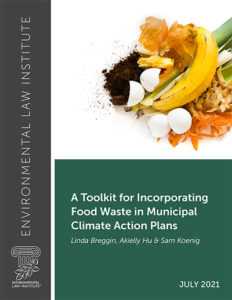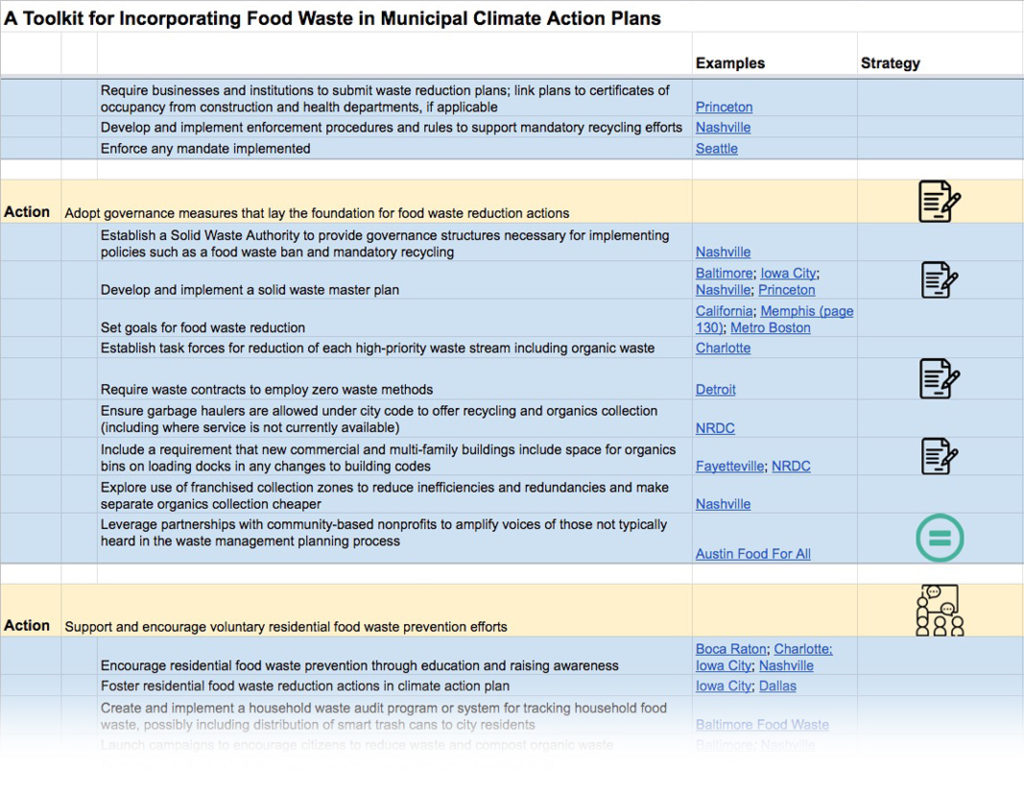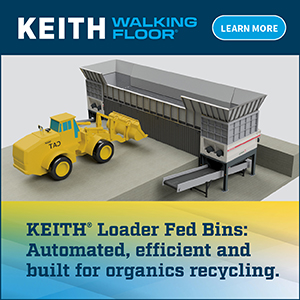 Towns and cities throughout the U.S., and globally, are on the front lines when it comes to addressing food waste and climate change. Recognizing the link between these two challenges, the Environmental Law Institute (ELI) released a new report in August to help address them simultaneously — in their climate action plans (CAPs). “As the entities primarily responsible for managing waste and safeguarding public health, including ensuring that low-income communities and communities of color do not bear disproportionate burdens, cities are well situated to leverage their on-the-ground expertise and local policymaking authorities to simultaneously address climate change, food security, waste reduction, and environmental justice,” explains Linda Breggin, Senior Attorney and Director of ELI’s Center for State, Tribal, and Local Environmental Programs.
Towns and cities throughout the U.S., and globally, are on the front lines when it comes to addressing food waste and climate change. Recognizing the link between these two challenges, the Environmental Law Institute (ELI) released a new report in August to help address them simultaneously — in their climate action plans (CAPs). “As the entities primarily responsible for managing waste and safeguarding public health, including ensuring that low-income communities and communities of color do not bear disproportionate burdens, cities are well situated to leverage their on-the-ground expertise and local policymaking authorities to simultaneously address climate change, food security, waste reduction, and environmental justice,” explains Linda Breggin, Senior Attorney and Director of ELI’s Center for State, Tribal, and Local Environmental Programs.
The report, A Toolkit for Incorporating Food Waste in Municipal Climate Action Plans, includes model provisions that municipalities can use to include food waste measures into their CAPs. “The toolkit provides an easily accessible menu of options that include measures to prevent food waste, rescue surplus food, and recycle food scraps,” adds Breggin. “It stems from ELI’s Food Waste Initiative, which conducts research and works with stakeholders to prevent food waste, increase surplus food donation, and recycle the remaining food scraps.”
 A spreadsheet is used to present the following information:
A spreadsheet is used to present the following information:
- A menu of mitigation and adaptation actions related to food waste that can be included in CAPs and/or sustainability plans
- Links to example provisions in existing CAPs and/or sustainability plans for each action when available
- Icons that denote key strategies and approaches, including: policies and ordinances, public awareness and education, incentives and funding, leadership and recognition, and environmental justice
As an example, one action is “Reduce food waste at and through schools.” The action then has a list of steps, e.g., “Support compost projects at schools, including through grants/revolving loans.” The adjoining column has live links to examples of the specific step, in this case, initiatives in Baltimore and Seattle. “This new report helps resource-strapped cities by providing a menu of food waste reduction measures to pick from as they develop or update their climate change mitigation and adaptation plans,” notes Darby Hoover, a senior resource specialist with the Natural Resources Defense Council (NRDC).
Relatedly, ELI’s Food Waste Initiative recently worked with the NRDC to create a Model Compost Procurement Policy to help municipalities encourage or require use of compost products. As with the Toolkit, the policy — written by Breggin and Hoover — is designed to be adaptable for individual municipalities. Included are commentary for cities to better understand the benefits of key provisions and alternative approaches, as well as links to examples — all intended to help guide stakeholders and policymakers in tailoring the policy to the unique circumstances of their region. An “off-the-shelf” model policy or template without commentaries is also available. An article with details on the Model Compost Procurement Policy is scheduled for an upcoming edition of BioCycle CONNECT.













